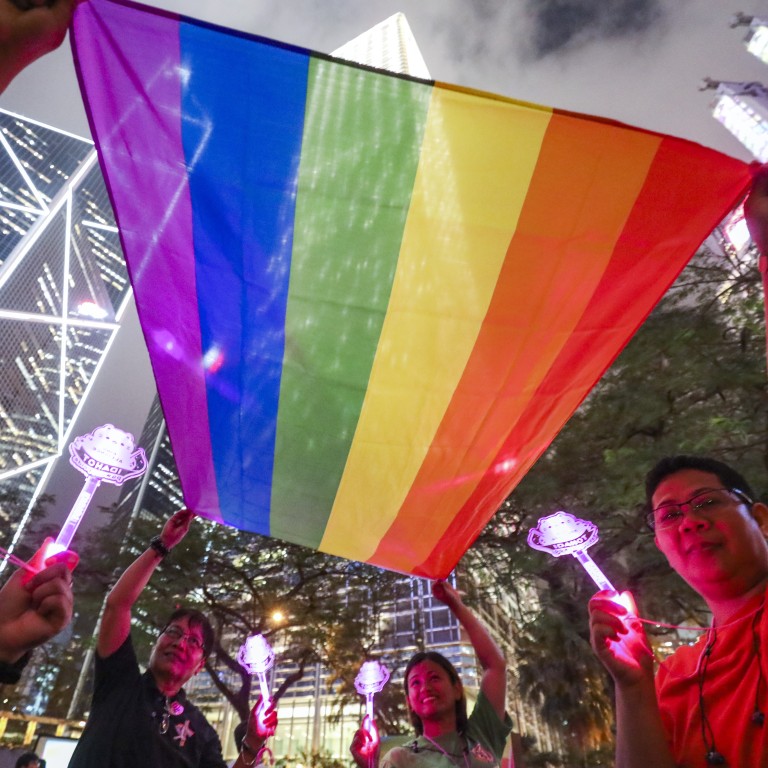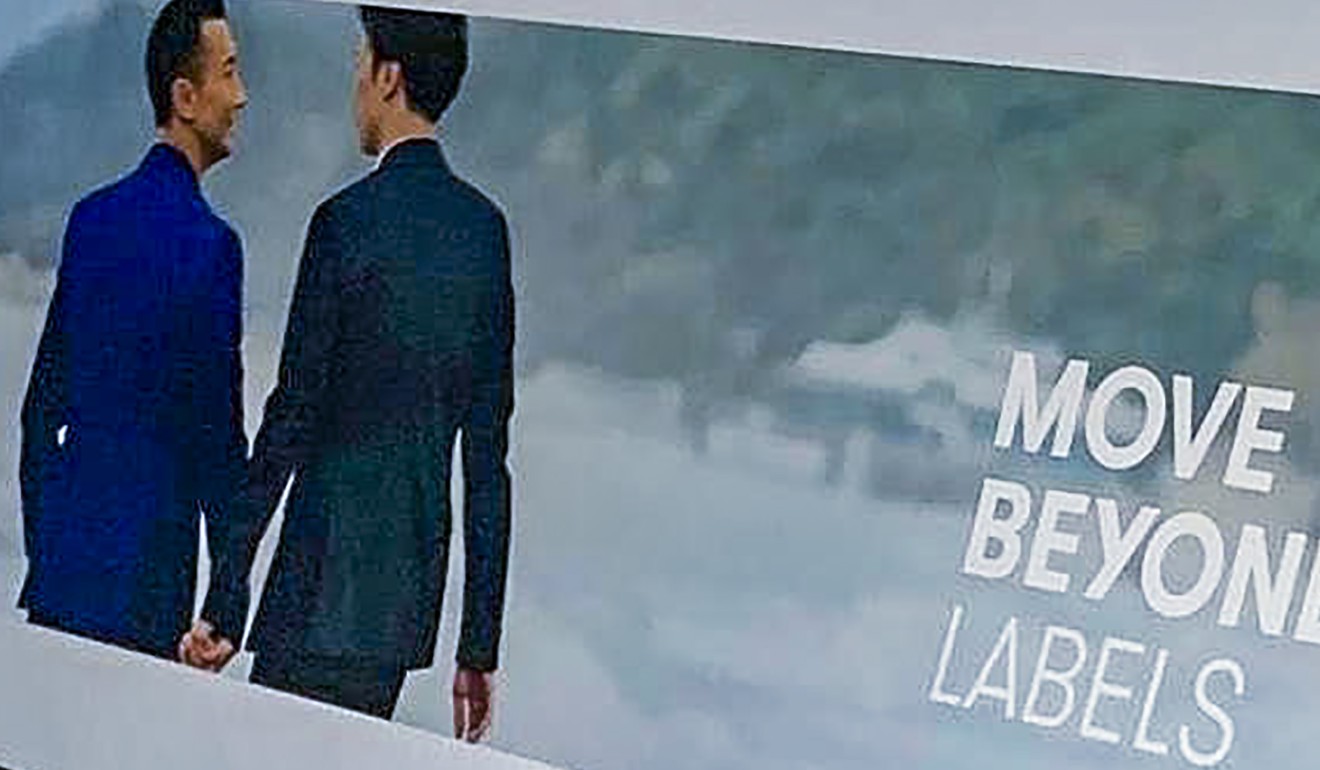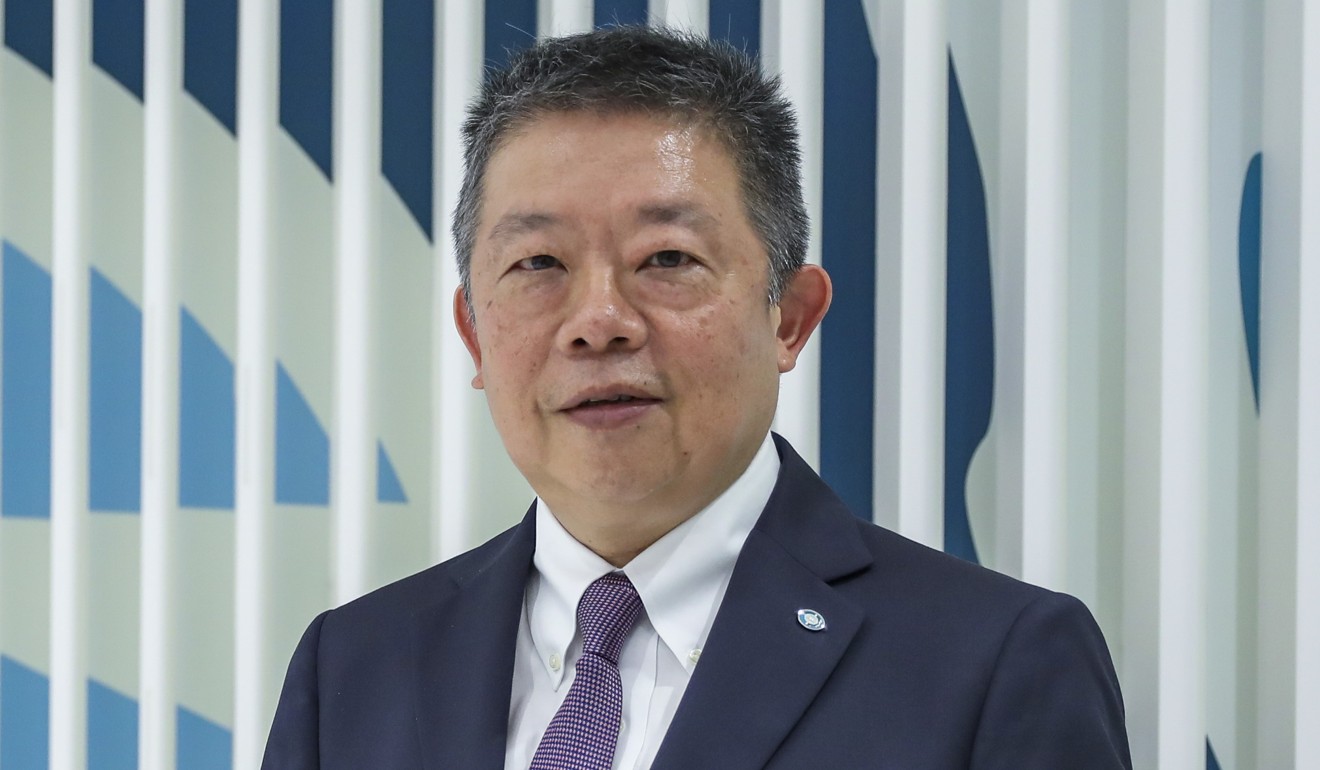
LGBT rights in Hong Kong: following furore over Cathay Pacific advert showing same-sex couple banned on rail network and in airport, what next?
- The initial ban on the advert showing same-sex couple at MTR stations and airport had sparked an outcry
- For some, legal option is the best way to fight for greater equality
While Taiwan last week became the first place in Asia to allow same-sex marriage, Hong Kong had its own fight for equality to grapple with. The courts have been asked to decide on cases such as those involving spousal benefits and visas of same-sex couples in recent years and this week, the train stations and the city’s airport became the latest battleground. The respective management of both had initially banned an LGBT-friendly advertisement, but later backed down after their decisions prompted an outcry.
So, what’s next in Hong Kong’s fight for equality?
What happened in the row over the advert?
Cathay Pacific first placed the advert at its headquarters on Lantau Island after launching a rebranding campaign in early May. It also sought placements at the airport and some major MTR stations.

Move Beyond – as the campaign was dubbed – included an advert showing two men strolling along a beach hand in hand.
The Post reported on Monday both the MTR Corporation and the Airport Authority rejected the LGBT content of the advert. MTR later pointed the finger at French company JCDecaux, which handled its advert.
The ban prompted the city’s LGBT community to launch an online campaign. In less than 24 hours, both the MTR and the authority had reversed their decisions.
Cathay Pacific advert showing same-sex couple banned from Hong Kong’s MTR and airport
Where do we stand now?
Same-sex marriage is not still recognised in the city under the Marriage Ordinance, which defines it as “a voluntary union for life of one man and one woman to the exclusion of others”.
But in recent years, activists have pursued legal actions to expand their rights incrementally.
In July last year, the Court of Final Appeal ruled in favour of a British lesbian, known as QT, requiring the Immigration Department to recognise her civil union partnership for the purpose of granting her a spousal visa.
In another landmark case in 2013, a transsexual woman, W, won her final appeal against the Registrar of Marriages, which refused to let her marry a man because her gender-at-birth was male.
While the city decriminalised homosexuality in 1991, sexual intercourse between two men under the age of 21 remained a crime for more than a decade, even though the heterosexual age of consent was 16. In 2005, a Hong Kong court ruled in a challenge brought by William Roy Leung that the discrepancy was unconstitutional and the law was changed.
How is Hong Kong compared to the rest of the world?
Just an hour’s flight away from Hong Kong, Taiwan became the first place in Asia to legalise same-sex marriage last week. Gay and lesbian couples there will get to tie the knot as soon as Friday.
Some 28 countries around the world now allow same-sex marriage, according to the Pew Research Centre.
Taiwan lawmakers vote to legalise same-sex marriage
The first to legalise same-sex marriage was the Netherlands in 2000. One of the most recent was Australia, where a divisive debate before a referendum in 2017 dominated international headlines. Austria legalised same-sex marriage at the start of this year before Taiwan.
The list consists of mostly nations in Europe and the Americas. South Africa, which legalised same-sex marriage in 2006, remains the only Africa nation to do so.
What can we expect in Hong Kong?
A number of cases are pending in the courts, with the most significant one taking aim squarely at the city’s lack of civil partnership as an option.
The most recent case the Court of Final Appeal has heard involved immigration officer Angus Leung Chun-kwong. He said he and his husband suffered from discriminatory treatment at the hands of the Civil Service Bureau and Inland Revenue Department, which refused to grant his husband, whom he married in New Zealand, spousal benefits and the chance to have their tax jointly assessed.
The top court, which heard the appeal two weeks ago, is expected to hand down its judgment soon. It will be the first time it has had to decide whether the government’s claim to protect the integrity of traditional marriage would be grounds for excluding LGBT people from certain rights.

In February, transgender men Henry Tse and two others lost their legal challenge in making the commissioner of registration recognise their adopted gender without having to go through a complete sex change. Tse has filed an appeal.
Meanwhile a gay man, Nick Infinger, is challenging the Housing Authority for not treating the marriage he entered in with his husband overseas as valid when it comes to allocating public housing. A Filipino reverend based in Hong Kong filed a legal action in May to ask the court to rule that prosecuting him for marrying same-sex couples in Hong Kong – considered illegal – is unconstitutional.
The elephant in the room involves cases launched by a lesbian identified as MK, and two others, who have decided to tackle the issue of the city’s lack of civil partnership or marriage head on. The court will hear the case of MK, who is demanding civil partnership, on May 28, before determining the other two cases.
How big is the opposition to granting the LGBT community equal rights?
Some religious bodies and parents’ groups are sceptical about greater rights for the LGBT community. In the Equal Opportunities Commission’s report in 2016, around one third of those polled rejected legal protection for sexual minorities, although the percentage remained about the same as the one recorded in 2005.
Some of them take issue with the LGBT litigants taking their cases to court as they find they are deprived of a chance to voice their opposition in the courtroom, where the plaintiffs, defendants, and often government departments, are represented. They believe the issue, which concerns the whole of society, should be left to the Legislative Council.
While acknowledging the plight of the LGBT community, Ricky Chu Man-kin, the chairman of the Equal Opportunities Commission wrote in an article in the Post that he would like to “create the conditions favourable for progress”. He did not give details as to whether the commission would push for legislation against discrimination during his term, but said there should be focus on discussing how practical measures could be put in place to safeguard the rights of the LGBT community.

